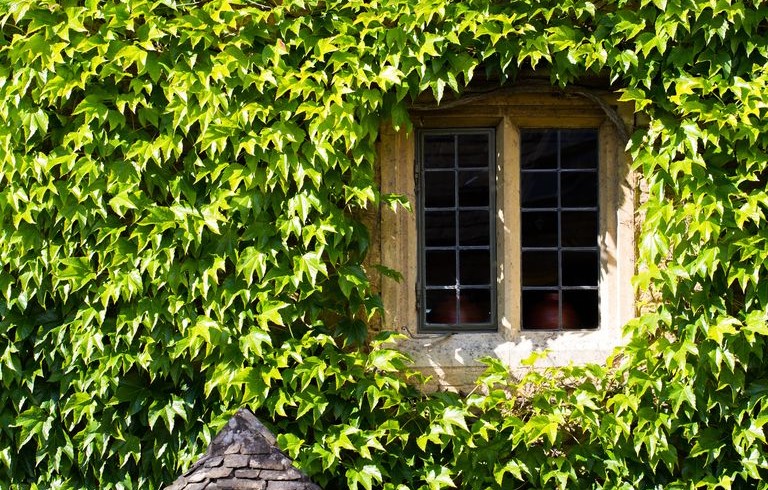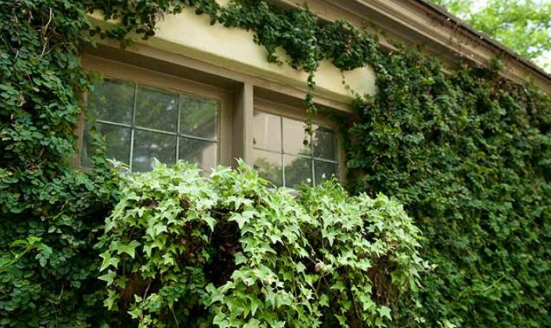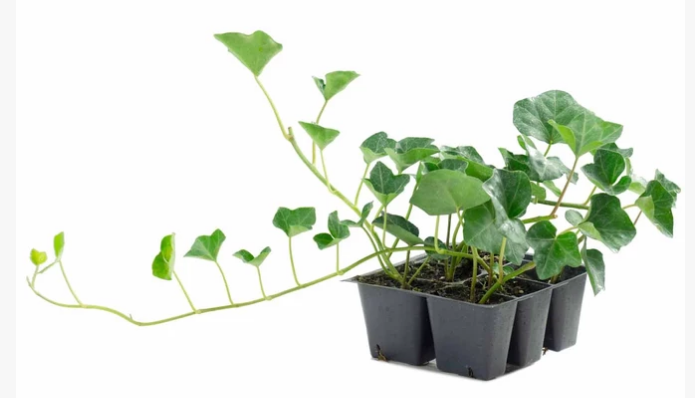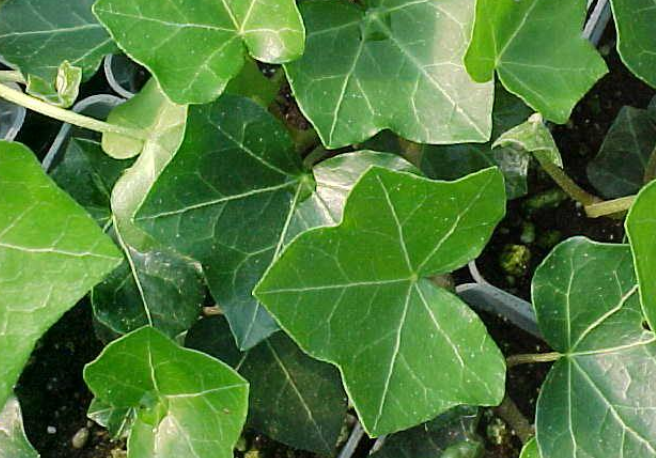
English Ivy aka English ivies are plants that have many medicinal and health benefits. These plants are good for the environment. It is high time to grow English Ivy plants inside or outside your house.
English Ivy plants are commonly known as Hedera Helix. These plants can thrive in cold as well as low light situations. Most people, especially who believe in protecting the environment is our first and foremost task like English ivies because of several other reasons. One of the most important things is these plants stay green all year and makes an attractive ground cover for decorative gardens. If you like gardening, then you must have heard of English ivies plants.
English ivies are popular as an ornament, particularly during Christmas and winter seasons. Therefore, these plants are very popular and widely grown in Western Countries.
When I first saw English Ivy plants in Cuttack, Odisha, India, I just fall in love with these plants. These evergreen plants climb up the side of trees and buildings, also adding colour where they go.
These plants are not actually native to the United States. Around the year 1727, European colonists brought these plants over. Now English ivies are grown everywhere, almost all parts of the world. When you grow these plants inside or outside of your house, just keep in mind one thing. You need to pour an adequate Things amount of water. If you are from Arizona or Washington, then you must have heard of these plants.
Things to Remember
When growing ivy as a houseplant, the most common insect infestations are from aphids, mealybugs, mites, whiteflies, and scale. So, with this in mind, there is a strong possibility that you might need to contact a team of pest control or disease prevention and removal experts at some stage. You can prevent or remove bugs or diseases from English Ivy by removing any dead leaves and stems, watering the plant early in the day, applying fungicide treatments, picking bugs off, spraying with pesticides, or applying oil extracts. The appropriate treatment depends on the exact nature of the issue. Ultimately, any insect infestations will need to be dealt with by a team of pest control experts. Correspondingly, if you are in the process of growing English Ivy, researching an ‘exterminator near me‘ online can help you to track down a specialist with the expertise to deal with any unwanted pests.

The benefits of English Ivy plants are undeniable, which I will discuss here, in this article.
These plants grow in shady areas in forest openings, cliffs or slopes. You can grow these plants in the fertile soils. Moist is important to grow these plants.
Other than ornamentation, the English ivies also have many medicinal properties. In ancient Greece, Hippocrates used these ivies to prevent intoxication and reduce swelling. The plants are good as an anaesthetic. Nowadays herbalists use these plants to treat respiratory conditions, such as:
- Asthma
- Arthritis
- Bronchitis
- Chronic Obstructive Pulmonary Disease
- Inflammation
Read on the article to know more about English Ivy plants benefits and what these plants can do for you.
English Ivy Plants
Hedera helix, aka ivy, English ivy or English Ivy plant. This plant is also known as European ivy, or just ivy is a species of flowering plant in the Araliaceae, native to most of Europe and Western Asia. This plant is suitable for sight in gardens, waste spaces, on walls, tree trunks as well as in wild areas across its native habitat.
English Ivy Plants Benefits: Do They Improve Air Quality?
English Ivy is extremely popular in outdoor landscaping. You may have seen this plant is used as ground-cover where grass does not grow or perhaps climbing up the side of a wall, often tree trunk. Due to its “carefree” nature, it has grown in popularity over the years.
Moreover, it spreads aggressively, many people hesitant in using it outside and keeps it as an indoor plant. This not only prevents from invading other plants outside your home but also purifies the air inside your home. Caring for English Ivy is relatively easy. Just keep the plant at a constant temperature, give it plenty of direct sunlight and water. Also, keep in mind that the soil is well-drained. If you can do these things, then English Ivy is easy to grow. This plant has the ability to remove organic chemicals from the air.

English Ivy Plants Can Reduce Mold & Particles of Fecal Matter
Experiments show that English Ivy plants can reduce the levels of faecal matter, mould and particles. Researchers put mouldy bread as well as dog faeces in tow different caskets and measured the levels of each in the air of the caskets. Then, they added English Ivy to each casket and measured the airborne particles 6 & 12 hour later. According to a stud, 6-hour later 60 per cent of the airborne-mould had vanished from the air around the Ivy. Almost 58 per cent of the airborne faeces was gone from the air and after more hours, the air was even cleaner. More than ¾ of the airborne mould was gone 78 per cent. Therefore, nearly 94 per cent of the airborne faeces were gone.
Can You Keep English Ivies at Home?
If you provide sufficient water and light, as well as humidity, it is relatively easy to grow English Ivy inside the home. One of the most critical elements here is light. English Ivies need bright light but cannot tolerate direct light, so you should provide light accordingly.
English Ivy Plants are available in these varieties:
Irish Ivy (Hedera hibernica)
Nepal Ivy (Hedera nepaulensis)
Japanese Ivy (Hedera rhombea)
English Ivy (Hedera helix)
Algerian Ivy (Hedera canariensis)
Russian Ivy (Hedera pastuchovii)
Persian Ivy (Hedera colchica)
Without sufficient light, ivy plants become far more susceptible to pests as well as diseases than they are outdoors or in the proper light. Apart from the proper light, you should also pay attention to the soil you are using while planting them. The plant should be well-drained and evenly moist. The water regimen should also be changed as the weather changes. If you keep these things in mind, then you will not be having any issue planting English Ivy plants.

How to Grow English Ivies?
Try to plant English Ivy plants in a shady area. You should use an organically rich soil. If you use soil that lacks organic matter, then amend the soil with compost before you plant. Space the plants 18-24 inches apart or a maximum of 1 food apart for the purpose of quicker coverage. One thing you should keep in mind is the vines grow almost 50 feet long, sometimes more, so do not expect quick results in the starting. Have patience, they will grow accordingly.
Grow English Ivy Plants
The botanical name is “Hedera Helix”, commonly known as “English Ivy”. These plants are a perennial woody evergreen vine. When they become mature, they look big. Yes, 6-8 inches high; up to 15-feet long as a vine. In the mature stage, they look wonderful.
Soil pH should be 6.0 to 7.8 at least. The hardiness zones 4-8, USDA. The native area is Northern Europe and Western Asia.
English Ivies Plants (Anit-Inflammatory, Antiarthritic & Antioxidant)
Other than ornamentation, the English Ivies have medicinal properties. From time immemorial, people in Greece used this plant. Hippocrates used English Ivies to prevent swelling, intoxication and used as an anaesthetic. These days, many herbalists use this plant to treat respiratory conditions, like asthma, bronchitis, COPD i.e. Chronic Obstructive Pulmonary Disease, inflammation and arthritis to name a few.
Ivy has the following properties: anti-inflammatory, antioxidant, antiviral, antispasmodic, antimicrobial, antitumor and anti-arthritic.
Triterpenoid saponins and flavonoids are the two main components of English Ivies that have been studied the most. Triterpenoid saponins help improve your gut absorption and fight against bacteria. Whereas, flavonoids help remove toxins from the body, reduce allergies, modulate enzymes to help your body, tighten and strengthen blood vessels.

English Ivies are Good for Many Illnesses
English Ivies have properties that are:
- anti-inflammatory
- antiarthritic
- antioxidant
- antiviral
- antispasmodic
- antimicrobial
- antitumor
These properties are helpful in:
- removing toxins from the body
- tightening and strengthening blood vessels
- reducing allergies
- modulating enzymes to help your body
Research showed that English Ivy can help relax the airways. These plants reduce coughs, which is especially helpful for people suffering from:
- allergies
- asthma
- bronchitis
- COPD
Impressive Benefits of English Ivy Plants
The most interesting benefits of English ivy include its ability to reduce inflammation, eliminate congestion, speed healing, soothe the stomach, increase oxygenation and boost the immune system. It also has the ability to heal the skin.
Among the other benefits, Ivy has significant antioxidant activity that means it can be beneficial for the prevention and development of cancer. By eliminating free radicals as well as preventing mutation and apoptosis, English ivy leaves can protect the body from various chronic diseases, including cancer.
Side Effects of Planting English Ivies
The biggest danger of planting English Ivy, moreover, is found in the leaves as well as berries of the plant. It contains glycoside hederin. These parts of the plants are poisonous for pets, and also for humans. Whether ingested, you may notice a number of unnecessary symptoms, such as diarrhoea, upset stomach, and dilated pupils.
If you like my blog, get in touch with me via Twitter, Facebook, LinkedIn or Yoga2all. Comment below and share your thought about my blog.
Thanks for reading!


